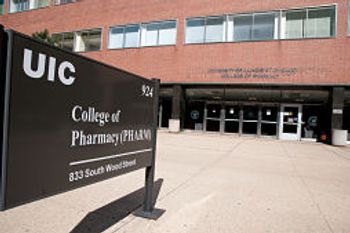
At some point in your career, you've probably encountered questions from patients or health care team members about diabetes medications' stability and how the products are supplied.

At some point in your career, you've probably encountered questions from patients or health care team members about diabetes medications' stability and how the products are supplied.

Communication is essential in patient care, and it must occur among all team members at all times.

A pharmacist will serve 24 years in prison for a variety of charges that include dispensing oxycodone without a legitimate medical purpose.

The risk evaluation and mitigation strategy for vigabatrin (Sabril) has been adjusted to remove certain elements.

Five years after graduating from pharmacy school, I thought I would lose my career as a pharmacist.

You have important information for those with chronic diseases, but how well do they know your pharmacy?

Recent study results published in JAMA showed a correlation between drug company-sponsored meals and physician prescribing practices.

The FDA today approved Gilead Sciences' sofosbuvir and velpatasvir (Epclusa) for the treatment of adult patients with chronic hepatitis C virus both with and without cirrhosis.

Pharmacists in all health care settings commonly see what seems like lifelong refills for cyclobenzaprine for musculoskeletal conditions.

With flu season rapidly approaching, pharmacies will once again be filling their refrigerators full of lifesaving influenza vaccines to add to their already extensive vaccine inventory.

This article highlights several key therapeutics areas for naloxone that every pharmacist should know.

The Ophiocordyceps sinensis fungus is one of the most expensive and sought-after biological resources, but it's better known around the world as yartsa gunbu, yarsagumba, or Himalayan Viagra.

William Carey University is planning to open a pharmacy school at its campus in Biloxi, Mississippi, and the university has just announced the proposed school's pharmacy dean.

The Academy of Managed Care Pharmacy is proud to announce the launch of the Biosimilars Resource Center, an unbiased, policy-neutral repository of educational resources and information on biosimilars for pharmacists, physicians, nurses and other health care providers.

Equashield has announced that the company's flagship Equashield product has been selected the Gold Winner of the General Hospital Devices and Therapeutic Products category of the 18th Annual Medical Design Excellent Aware competition.

All pregnant women, plus those planning to become pregnant during the influenza season, should receive an inactivated influenza vaccine, according to the American College of Obstetricians and Gynecologists and the CDC's Advisory Committee on Immunization Practices.

Walgreens customers now have the ability to redeem paperless coupons from Walgreens and manufacturers for online purchases, as well as in-store purchases.

Most independent community pharmacists consistently encounter misleading and confusing fees imposed by prescription drug middlemen that negatively impact both pharmacies and patients and distort medication costs and reimbursement rates, according to a recent survey of 640 pharmacists conducted by the National Community Pharmacists Association.

Publix has been ranked No. 74 on Fortune magazine's 2016 list of 100 Best Workplaces for Millennials."

ASHP's House of Delegates recently adopted a policy to call on Congress to ban direct-to-consumer pharmaceutical advertising.

The University of Illinois at Chicago College of Pharmacy shapes pharmaceutical science and clinical practice around the world, with international collaborations in more than 20 countries.

The places where pharmacy technicians work outside of traditional retail and hospital settings might surprise you.

Most pharmacists have had the unfortunate experience of assisting a patient who's unable to afford a prescription medication.

A pharmacist has been accused of scheming with a dentist to prescribe and dispense controlled substances, and then splitting the pills.

The FDA has rejected KemPharm Inc's benzhydrocodone and acetaminophen (Adapaz), a potential abuse-deterrent treatment for acute pain.

Have you seen these drug safety warnings?

Plan a work trip to one of these upcoming conferences on the Left Coast.

During febrile seizures, babies fall unconscious and may convulse. Their eyes may roll back, and their limbs may twitch or become rigid.

As public health authorities seek to raise awareness about HIV testing, a study funded by the National Association of Chain Drug Stores Foundation is evaluating a model which may provide patients with increased access to HIV and Hepatitis C testing, and link patients to a specialized physician or health department as needed for further care.

The Rite Aid Foundation has announced a $50,000 donation to the American Red Cross West Virginia Region to help the victims, families and communities affected by last week's historic flooding.